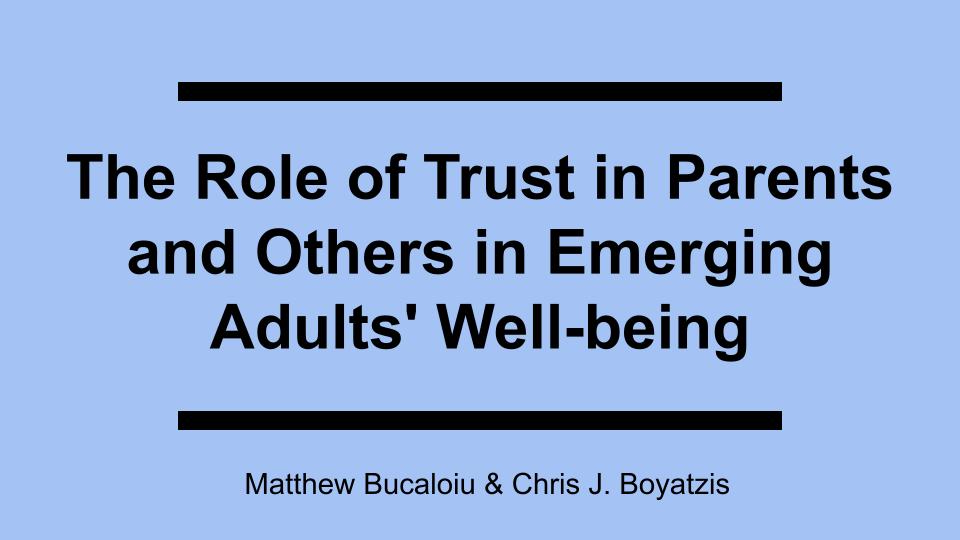
The Role of Trust in Parents and Others in Emerging Adults' Well-being
Author:
Matthew Bucaloiu ’26Co-Authors:
Chris J. BoyatzisFaculty Mentor(s):
Chris J. Boyatzis, Psychology DepartmentFunding Source:
Psychology DepartmentAbstract
Trust in others is an important factor associated with well-being and relationship quality. Little psychological research has examined U.S. emerging adults’ trust in their parents and how that trust is related to their general trust in others and their own well-being. With a sample of 152 undergraduate students at a northeast U.S. university, we tested the hypothesis that emerging adults’ trust in their parents and in others would predict three key components of well-being: self-esteem, self-efficacy, and life satisfaction. We also predicted that parental care would positively predict well-being while psychological control would be a negative predictor. In hierarchical regressions, students’ self-esteem was predicted by their judgments of others as trustworthy and their trust in their fathers (but not mothers). Self-efficacy was positively predicted by students’ judgments of others as trustworthy and their willingness to trust others. Life satisfaction was predicted by their willingness to trust others and their trust in their fathers (but not mothers). When parenting variables were added to the regression model, maternal psychological control strongly predicted lower self-esteem and dropped all trust predictors to insignificance. Lower life satisfaction was predicted by students’ willingness to trust others, their trust in their fathers, and mothers’ psychological control. These results suggest that during emerging adulthood, students’ trust in others, their trust in their fathers (but not mothers), and their mothers’ use of psychological control have strong implications for their own well-being.